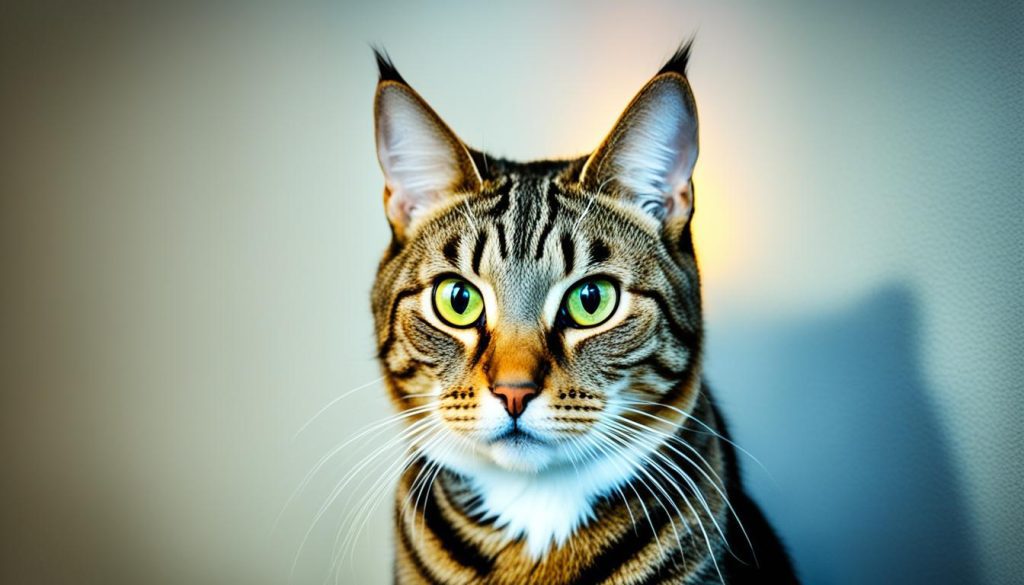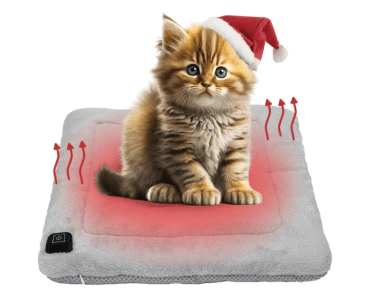As a cat owner, I’m always curious about the unique behaviors and traits of our feline friends. One question that often comes to mind is, can cats have autism? It’s a fascinating topic that explores the intricacies of feline behavior and neurodiversity. Let’s dive in and understand more about how cats behave and whether they can exhibit autistic behaviors.
Can Cats Have Autism? No, there is not enough scientific evidence yet.
- Cats cannot have autism, but they can exhibit behaviors similar to those seen in humans with autism.
- Repetitive actions, excessive vocalization, difficulty adapting to change, anxiety, and sensitivity to external stimuli are some of the behaviors that cats with autism-like traits may exhibit.
- Consulting with a veterinarian is crucial in evaluating and treating any concerns about your cat’s behavior.
- Treatment options may include behavior modification techniques, environmental enrichment, pheromone therapy, or medications.
- Understanding feline behavior and providing a calming and predictable environment can help cats with behavioral challenges lead fulfilling lives.
Exploring Feline Behavior and Autism
Feline behavior is fascinating and intricate, influenced by instincts, habits, and social interactions. As cat owners, we have all marveled at the unique mannerisms and communications of our furry companions. Researchers have delved into the world of cat behavior, studying body language, vocalizations, and social interactions to gain a deeper understanding of our feline friends.
While there is no conclusive evidence of autism in cats, exploring feline neurodiversity is crucial to recognizing the potential for unique variations in their behavior. Each cat is an individual with its quirks and personality. By embracing their diversity, we can better cater to their needs and enhance their overall well-being.
Understanding their behavior is the key to providing the best care. It allows us to decipher their moods, identify stressors, and establish a harmonious relationship. By observing subtle cues such as tail flicks, ear positions, and vocalizations, we can better understand their emotions and responses.
Consulting with a veterinarian or an animal behaviorist is essential when it comes to managing and addressing any behavioral concerns. They can provide professional guidance and support based on their understanding of feline behavior, ensuring that we create a safe and nurturing environment for our feline companions.
Can Cats Have Autism? The Scientific Perspective
While autism is well-documented in humans, the scientific research on cat autism is limited. There is no conclusive evidence to support the existence of autism in cats. Some behaviors in cats may resemble certain aspects of autism in humans, but it is important to note that these behaviors can also be attributed to normal feline behavior, genetics, environment, or socialization.
Feline behavior is complex and influenced by various factors. As such, further research is needed to better understand the complexities of feline behavior and determine the presence of autism in cats. This ongoing feline autism research aims to shed light on any potential correlations between behavioral patterns in cats and autism spectrum disorders in humans.

Signs and Symptoms of Autism-Like Behavior in Cats
Identifying signs of autism-like behavior in cats can be challenging due to the inherent differences in feline behavior and communication. However, certain behaviors may indicate the presence of autism-like traits in cats, including:
- Stereotypic behaviors: Cats with autism-like traits may engage in repetitive actions, such as pacing, tail chasing, or excessive grooming.
- Sensory sensitivities: Cats with autism-like behaviors may display heightened sensitivity to certain stimuli, such as loud noises, specific textures, or bright lights.
- Social challenges: Cats with autism-like traits may struggle with social interactions, displaying a preference for solitude or difficulty in adapting to new people or animals in their environment.
- Rigid routines: Cats with autism-like behavior may exhibit a strong preference for sameness, becoming distressed or anxious when their daily routine is disrupted.
It is important to consider a comprehensive evaluation and consult with a veterinarian or animal behaviorist for a proper diagnosis and guidance.

Conclusion
While cats cannot have autism in the same way humans do, they can still have special needs and require appropriate care. Understanding feline behavior is crucial in providing the best care for our beloved feline friends. Creating a calming and predictable environment can help cats with behavioral challenges live happy and fulfilling lives.
Regular veterinary care is also essential for maintaining cat health. Routine check-ups, vaccinations, and preventive treatments can help identify and address any underlying issues that may contribute to behavioral changes. A knowledgeable veterinarian can provide guidance and support in managing cat behavior and promoting overall well-being.
It is important for cat owners to seek professional assistance when dealing with cat behavior issues. Consulting with a veterinarian or animal behaviorist can provide valuable insights and develop tailored strategies for addressing specific behavioral concerns. These experts can recommend behavior modification techniques, environmental enrichment, and other interventions to help cats thrive.






